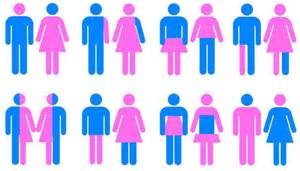The other week I attended an excellent Equality and Diversity Forum that included a workshop delivered by a final year student on issues that can arise for transgender* students during their time at University. This student’s experience highlighted the stress of telling not only family and friends but also university staff, being concerned how she would be viewed, the difficulties of expressing how she was feeling and the support she would have liked. When asked about applying for jobs, this was seen as yet another hurdle to be taken at a later date. So I thought it might be useful to look at what help is out there, and what are the key issues for transgender students when applying for jobs, the protections you have legally and the choices you have. I have only touched on some issues but there are signposts to further reading and support available.
Protections from legislation
A transgender application is protected under the Equality Act 2010 and also the Gender Recognition Act 2004. For further information check out our Diversity and Disability Moodle course
Do I need to disclose my gender identity?
You are under no legal obligation to disclose details around this unless there is a "Genuine Occupational Requirement" related to the job. An employer must show that the requirement to discriminate is a "proportionate means of achieving a legitimate aim". However, regardless of any legal requirements, you may wish to consider reasons for and against disclosure. If your transgender status is recognisable, then you may feel more comfortable to disclose at an early stage to avoid any unwanted discussion of the issue. Depending on how you integrate your working life into your personal life - you may find a certain level of disclosure is necessary.
When to disclose
The earliest opportunity to disclose your gender identity to an employer will be at the application stage. If you are in the process of transition and have not yet received a Gender Transition Certificate (GRC), you are obliged, if asked (on the application form, although this isn't always the case), to declare your assigned gender at birth.
If you have transitioned and have your GRC, you may want to take the opportunity to raise this on the application form regardless of any specific questions relating to gender. Again, this is your choice but it may minimize anxiety about the next stage of the application process; especially as a face-to-face interview is already stressful enough for any job applicant.
If you are intending to transition, you may choose to inform your employer of your intentions either at application or interview stage. Once in employment, you are protected by employment law.
For further information on protections and disclosure, do check out our Diverse and Disability Moodle course
Job Applications and your previous name
Revealing this will depend a great deal on the type of job you are applying for, how "out" you are, and whether your previous name is requested in an employment application.
If previous names are requested in an employment application, it is usually for the purposes of a background check. That means the employer is planning, at some point, on conducting a background check. Failure to reveal the information could be seen as a misrepresentation or, more accurately, a material omission. Dr Jillian Weiss (see her US blog http://bit.ly/2gcVmPP) gives some really helpful insight into this issue. She suggests one solution is to submit your application with your new name and then contact the HR department separately to indicate the fact of transition and request that the information be kept confidential with the HR department as a matter of medical privacy.
If there are no previous name requests but you know references will be taken up by a potential employer, Weiss suggests contacting your previousl employer and saying that your new name will be used. For further information on names and what to do read more at http://bit.ly/2gcVmPP.
Searching out the right employer
Find out as much as you can about the organisations commitment to diversity. See our moodle course for more information on this. https://moodle.bath.ac.uk/course/view.php?id=56971
A few of the things you could look for are:
• An equal opportunities policy; especially look for policies that relate to the
• recruitment of transgender people.
• Terminology employees have used in their policies. The use of the term “gender identity” (currently considered the most appropriate term) would suggest that they have researched best practice.
• Look out for those employers who have received The Press for Change Award for Equal Opportunities, which demonstrates a company’s positive commitment to recruiting transsexual people.
• Specialist events such as the Diversity Show, so you can identify employers committed to attracting employees from diverse backgrounds.
Do bear in mind that even the most forward thinking employers may not have had experience of recruiting and supporting transgender staff and you may need to help them by providing advice. Don't apologise for who you are, instead celebrate your difference. It is quite natural to be fearful of intolerant attitudes, but do promote yourself as much as possible as a positive individual who had the courage to address difficult life issues.
Further Support
• Our moodle course includes lots of other organisations offering support and advice as well as job websites of inclusive and diverse employers. See above for link.
- The LGBT+ group at the University offers support and advise
- The Target Job website at http://bit.ly/1ZNBteT also lists some other useful websites for further information and support.
- If you are a transgender student and would like to discuss any career concerns, then please do book to see a Careers Adviser. Go to https://myfuture.bath.ac.uk/students.
*Transgender is an umbrella term often used to describe people who feel their gender identity is not compatible with their assigned gender at birth, as well as people who fall outside of the gender binary (people who are non-binary or genderqueer, e.g. bigender, pangender, genderfluid or agender).
Respond


